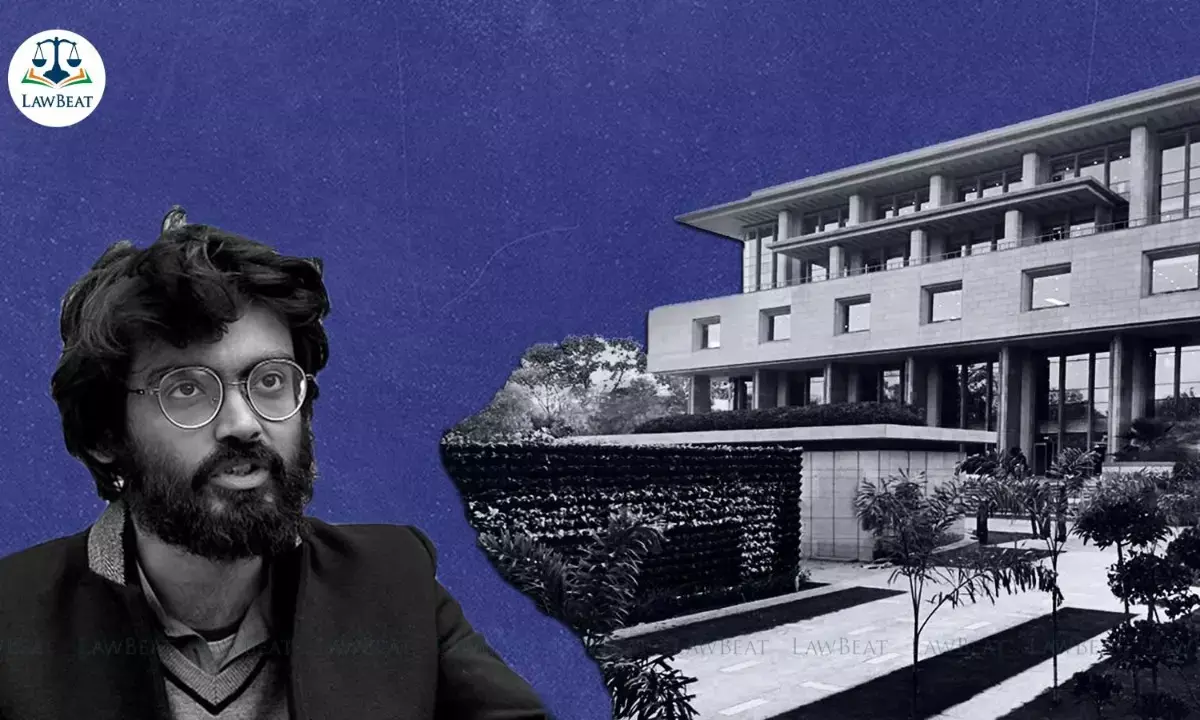'Prosecution Fails to Show Evidence of Intention to Incite Violence': Sharjeel Imam Before Delhi HC

The Delhi High Court, on Thursday, heard the arguments presented on behalf of Sharjeel Imam seeking bail in a larger conspiracy case related to the riots that occurred in Northeast Delhi in 2020.
The bench of Justice Navin Chawla and Justice Shalinder Kaur, after hearing the long submissions of the co-accused, remarked, “We thought we were considering a bail application, but it seems like we conducting a mini trial”. The court further listed the matter for May 21, 2025.
The advocate appearing for Imam argued that the prosecution relies on chats of two WhatsApp groups, but failed to provide any message that shows the intention of Imam to incite violence or communal hate. “The prosecution claims that the chats led them to believe there was a conspiracy among all co-conspirators but strangely, there have been no chats with the said co-conspirators”, the advocate for Imam stated.
Imam's advocate contested the charges against him, asserting that Imam was not in Delhi during the riots that occurred in February and was delivering speeches in Bihar and Bengal. Imam's advocate further argued that Imam was being prosecuted in a separate FIR regarding the riots that occurred in December and January under provisions of sedition, unlawful activity, and hate speech, in which Imam was granted bail.
Imam's advocate further argued that Imam was uniquely disconnected from the other accused and was not part of any group activity that involved the plans to incite violence. The group referred to as MSJ was, according to the advocate, an informal student collective, and no chat messages from this group demonstrated any intent to incite violence in Delhi or elsewhere.
“In these chats, the prosecution failed to show any chat that conveyed the intention of inciting violence in Delhi or any part of the country”, the advocate for Imam submitted.
Reading from the conspiracy note filed by the prosecution, the advocate emphasized that Imam’s only alleged role was established through Section 120B IPC (criminal conspiracy). He pointed out that the first alleged conspiracy, related to the Citizenship Amendment Act, did not name Imam. The prosecution claimed that communal groups had been formed, but no messages had been produced showing a call for violence.
“Per the prosecution's case, because the MSJ group was made, the participants belonged to a single community and therefore it is a communal group. No single message from that group has been shown that could show any intention of inciting violence… Per the principles established by the Supreme Court, hate speech is when one community is pitted against another community. In the absence of a second community, there is no question of the group being communal”, the advocate for Imam submitted.
According to the prosecution, Imam’s acts of conspiracy included creating the group MGJ and organizing early meetings for mobilization. Imam's advocate countered this by noting that the riots being investigated in this current FIR occurred between February 22 and 26, while any incidents from December or January were subject to different cases and should not be conflated with the present matter.
The prosecution had referenced a meeting on December 8, 2019, in Jangpura, allegedly attended by Imam, Umar Khalid, and others. The advocate for Imam clarified that while Imam was indeed present at the meeting with Khalid and Yogendra Yadav, only two co-accused individuals were present. Citing a witness statement by one Tahira, the advocate for Imam stated that the meeting's objective had been to organize a “chakka jam,” and no discussion on violence had occurred.
“Absolutely nothing on violence. When there is absolutely nothing on violence per prosecution's own evidence, then how is the later meeting being termed as conspiratorial in nature?”, the advocate for Imam argued.
The advocate for Imam rejected the prosecution’s argument that Imam and three other co-accused were meeting. The advocate for Imam argued that the prosecution “somehow fails to show any connection. no phone call records, no messages with any of them”.
In conclusion, the advocate for Imam urged the court to show compassion and fairness in evaluating the matter, stating that Imam’s life had been laid bare before the Court.
In the previous hearing, Sharjeel Imam argued that his inclusion in the investigation stemmed from his representative position in various associations, and the authorities sought to make an example out of him. Senior Advocate Salman Khurshid, appearing for Sharjeel Imam, pointed out that although Imam served as president of several associations, no other member from those associations were implicated. He maintained that Imam supported the protests in his representative capacity, without engaging in any unlawful activity.
Case Title: Sharjeel Imam v The State (Crl.A. - 184/2022)
